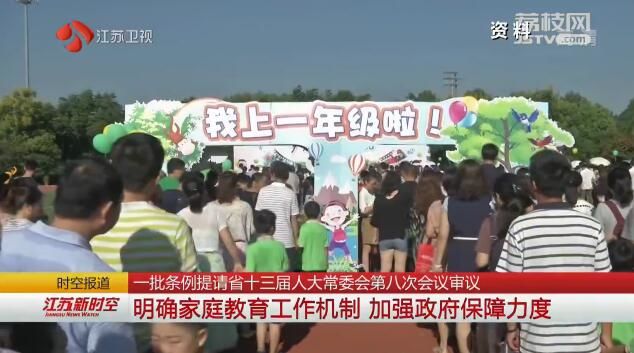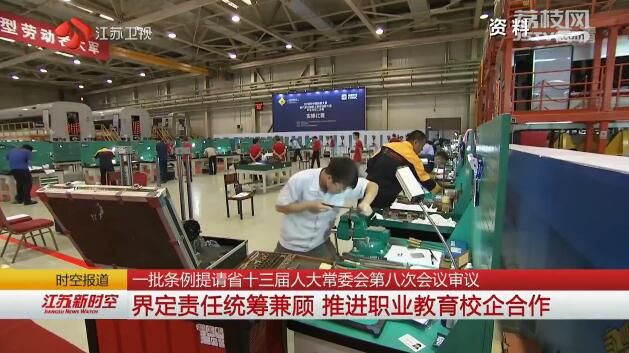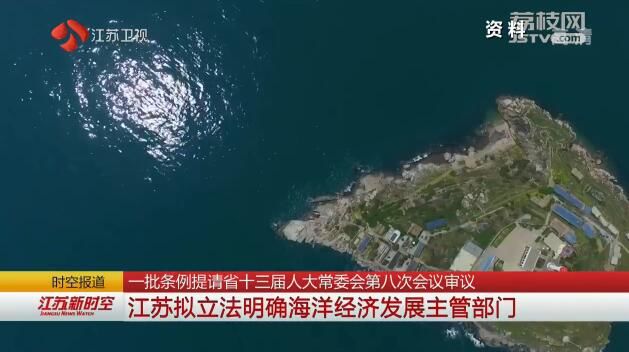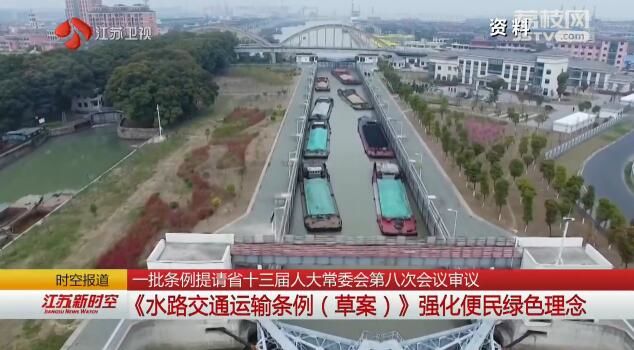A number of regulations have been submitted to the Provincial People’s Congress for deliberation at the 8th session of the standing committee meeting.

The draft Jiangsu Provincial Family Education Promotion Regulations submitted for deliberation clearly defines the concept of family education, and further strengthens the government's promotion responsibility and school guidance responsibility in a bid to enhance cooperation between home and school.

The draft Regulations on Promotion of School-Enterprise Cooperation in Vocational Education in Jiangsu Province starts from defining the responsibilities and solving the outstanding problems in the cooperation between schools and enterprises, clarifying the rights and obligations of schools and enterprises in cooperation, and taking into account the appeals and rights and interests of the relevant subjects of school-enterprise cooperation in a bid to cultivate more high-level skilled personnel with craftsmanship spirit.

The draft Jiangsu Province Marine Economic Promotion Regulations, which was submitted for second reading, stipulates that the provincial natural resources authorities are responsible for the development of the province's marine economy in accordance with the functional arrangements after the reform of the organization. At the same time, it fully reflects the development of the marine economy in the province's land and sea coordination and rivers and seas and further clarifies the characteristics of the differentiated requirements for industrial planning of marine economic development in different regions.

The draft Regulations on Waterway Transportation and Transportation in Jiangsu Province, which was submitted for second reading, has added a number of provisions for the convenience of people's service, and proposed to use information technology to collect information such as certificates and licenses of water and land transportation operators at one time to achieve data sharing. At the same time, it will promote the construction of green waterways and green ports, and stipulate that ship pollutant receiving facilities and oil and gas recovery facilities should be built at terminals in addition to the installation of shore-based power supply facilities.






